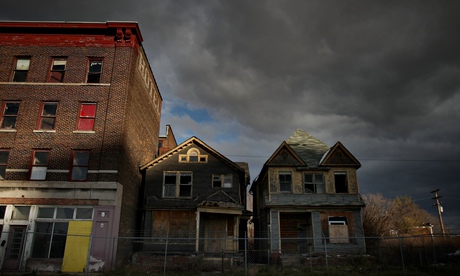
Lauren Beukes’s Broken Monsters (Harper Collins £12.99) opens with a detective standing over a body. So far, so run of the mill. “Dead is dead,” she thinks. “It’s only the hows and the whys that vary.” A few short paragraphs later, we learn quite how much this particular “how” varies: the body is that of a boy, black, around 10. He’s missing his legs; his upper body has been attached to the lower half of a deer. It is a uniquely disturbing image to begin this uniquely, horribly, brilliantly disturbing novel. Set in Detroit, that landscape of ruined dreams, Beukes’s glimpse into the mind of a murderer whose grip on reality is unravelling fast should be a shoo-in for thriller of the year.
Unless the South African is pipped to the post by Tana French, who just gets better and better. The Secret Place (Hodder & Stoughton £14.99) is set in a world better known by fans of Malory Towers than thriller aficionados: a girls’ boarding school. A teenager from the neighbouring boys’ school was murdered on the grounds a year ago; the case has gone cold, until 16-year-old Holly Mackey, detective’s daughter and witness in French’s Faithful Place, turns up in Detective Stephen Moran’s office bearing a note: “I know who killed him.” And it turns out that a girls’ boarding school is the perfect setting for a murder mystery, packed with hysteria and hormones and tons of swishing hair. “Posh girls’ school: lovely and safe, I’d’ve thought… But I was starting to see it, out of the corner of my eye: the shimmer in the air that says danger,” says Moran. French’s novel is fraught with menace; it’s also a poignant, heart-piercing reminder of life as a teenager. “You forget what it was like. You’d swear on your life you never will, but year by year it falls away.”
Beukes’s fellow South African, Sarah Lotz, also impresses with The Three (Hodden & Stoughton £13.99), a slice of post-apocalyptic tension that sees four planes crash on 12 January 2012, leaving three survivors, all children. There was a fourth, an adult, but she died, after recording one last voice message. “They’re here… The boy. The boy watch the boy watch the dead people oh Lordy there’s so many… They’re coming for me now. We’re all going soon. All of us…” Cue paranoia, panic, end-timers, talk of the Rapture; Lotz’s world collapses quickly and nastily in this meaty, impressive, high-concept thriller.
First-time UK novelist Sarah Hilary is another talent to be watched, her debut, Someone Else’s Skin (Headline £7.99), a standout of the year. The first in a series to star DI Marnie Rome, it is set around an attempted murder in a London women’s refuge but travels to even darker territory, as Rome confronts her own past and the murder of her parents by their foster son and falls into the sphere of real evil. Hilary vies with Beukes for most unsettling scene of the year.
Two tried and trusted names in the crime and thriller world, meanwhile, provided fresh takes on much-loved characters in the genre this year. Sophie Hannah bravely took on Hercule Poirot, in the joyously intricate, immaculately executed The Monogram Murders (Harper Collins £18.99), pitching Agatha Christie’s Belgian detective into the heart of a horrible crime: three murdered guests at a London hotel, each with a cufflink placed in their mouth. And Benjamin Black/John Banville, equally courageous, proved himself equal to the task of resurrecting Raymond Chandler’s Philip Marlowe, his novel The Black-Eyed Blonde (Mantle £16.99) putting the melancholy detective on the trail of a vanished lover and amply rewarding those fans who have chafed at the mere seven Marlowe novels Chandler left behind.
Finally, Tom Rob Smith moves away from the Soviet chills of his hit debut, Child 44, longlisted for the Booker, to deliver perhaps his best novel yet. Daniel’s parents are, apparently, happily retired on a farm in Sweden when his father phones him in London. His mother is, says his father, psychotic. Daniel books a flight immediately, only to hear from his mother, who tells him it is all a conspiracy, that her husband is attempting to discredit her because she has evidence of something terrible. “Chris claims I was chasing a perfect life in Sweden and a gap opened in my mind between expectation and reality, a gap that expanded as the months progressed, and out of my disappointment was born the belief that there was, in place of paradise, a hell of depravity and human disgrace,” she says. “It’s a seductive argument, and it’s a lie, a clever lie.” The Farm (Simon & Schuster £12.99) is a morass of unreliable narrators and paranoia, scarily claustrophobic as it dissects life in a small rural community, and genuinely, lingeringly frightening.

